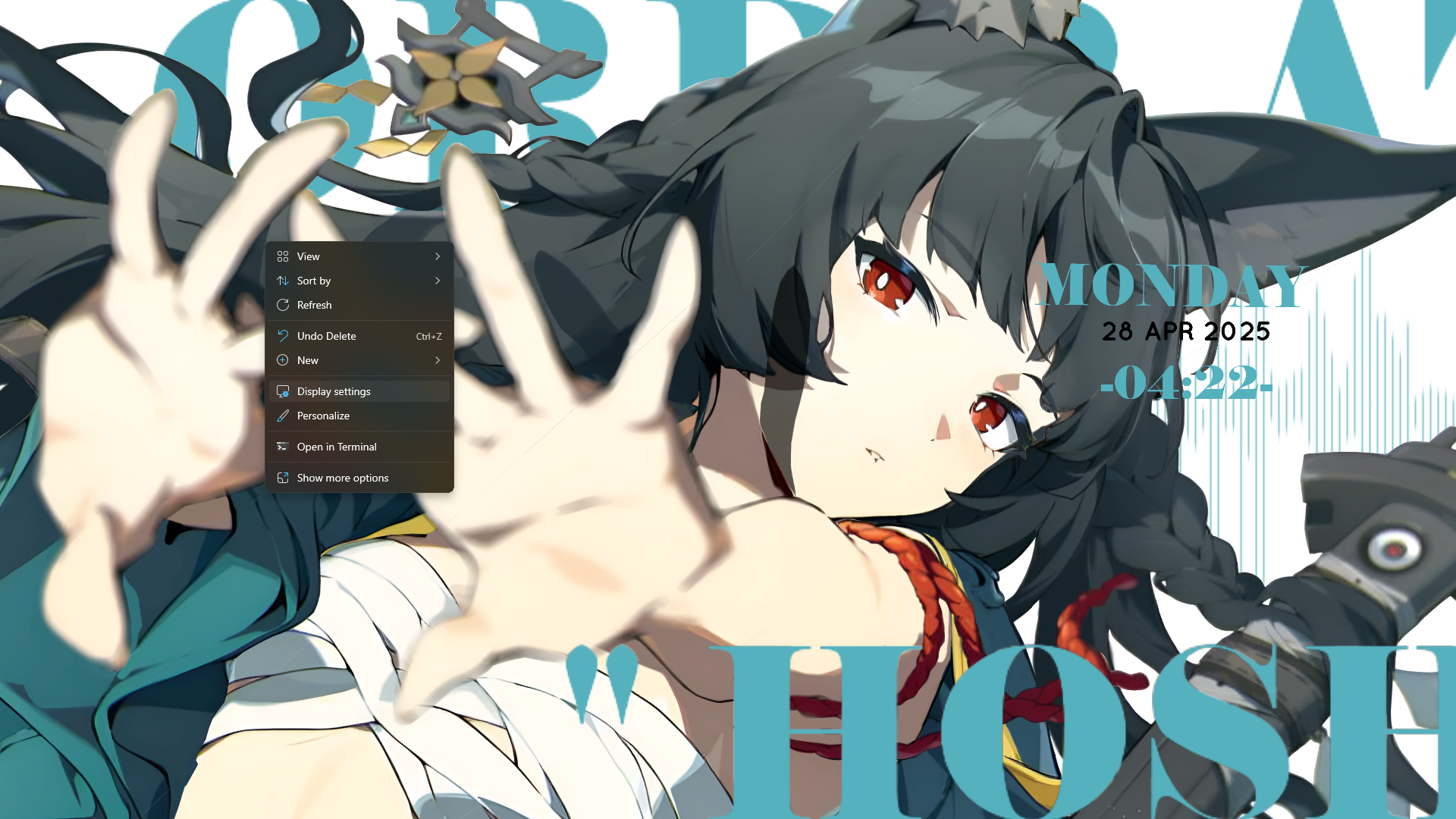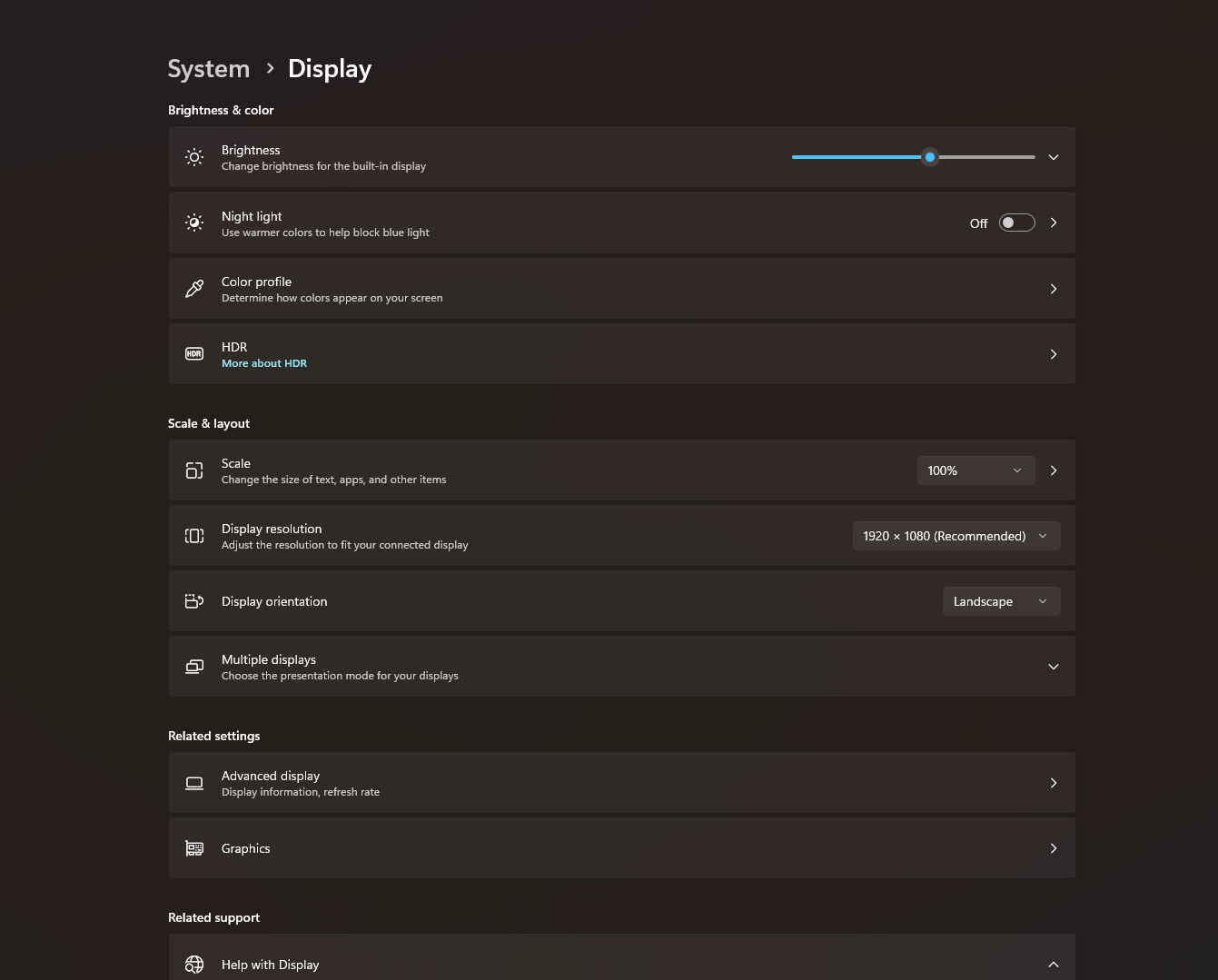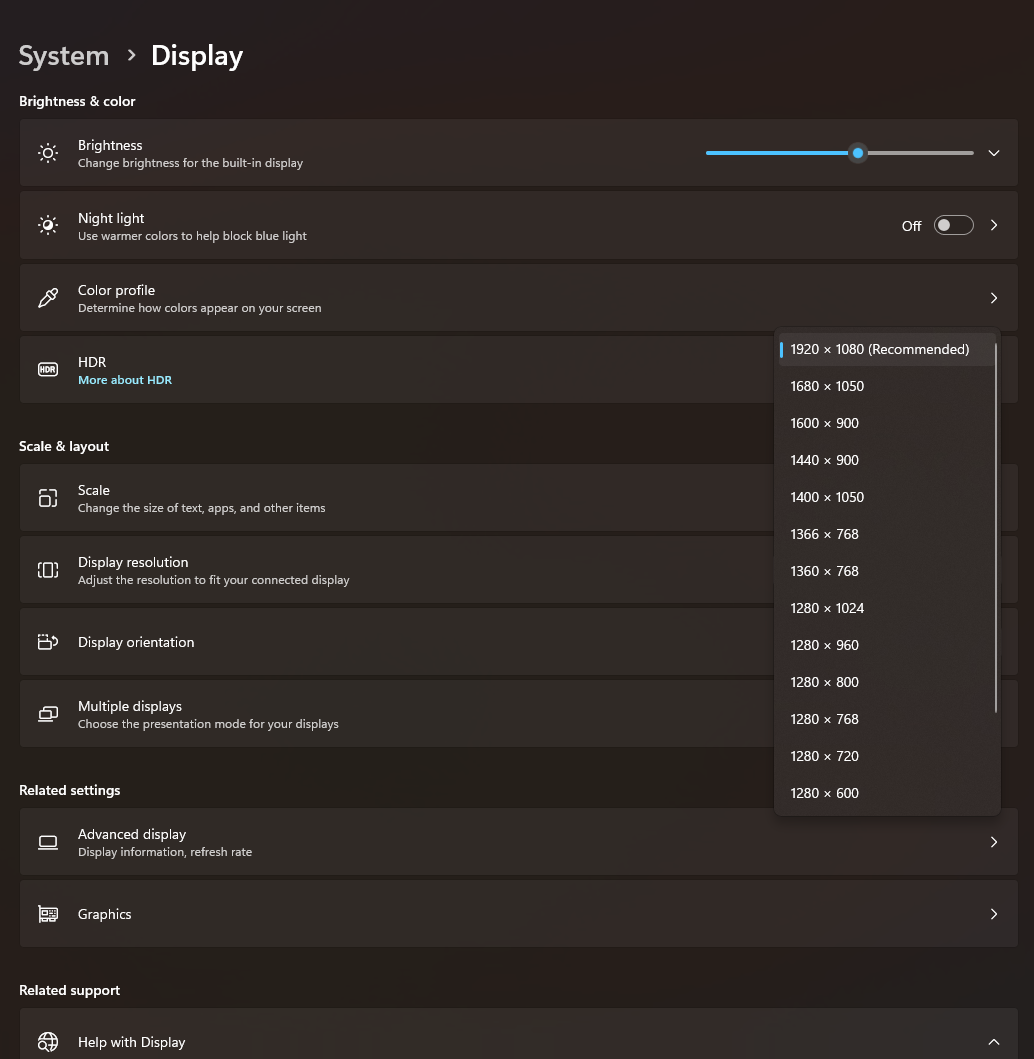Essential IT Equipment
Prerequisites
- Windows 10 operating system
- Active monitor connection
- Updated graphics drivers
How to Change Screen Resolution in Windows 10
Screen resolution determines how much information is displayed on your monitor. Higher resolutions produce sharper, more detailed images, but elements on the screen may appear smaller. Changing the screen resolution can help optimize the display according to your preferences and monitor capabilities. Here are the steps to do so:
Steps:
Access the Desktop Context Menu
Right-click (click the right mouse button) on an empty area of your desktop where there are no icons or windows open. A context menu will appear.


Select "Display settings"
In the context menu, find and click the "Display settings" option. The "Settings" window will open, showing various options related to the screen display.

Find the "Display resolution" section
In the "Settings" window, make sure you are in the "Display" category. Scroll down until you find the section titled "Display resolution." This section shows your current screen resolution, such as "1920 x 1080 (Recommended)."
Select Your Desired Resolution
Click on the dropdown menu under "Display resolution." A list of supported resolutions will appear. Scroll through and select the resolution you want to use. It is generally best to select the one marked "(Recommended)" for the optimal experience.
Confirm Changes
After selecting a new resolution, your screen may flicker. A confirmation window will appear asking "Keep these display settings?" If the display looks good, click "Keep changes." If not, either click "Revert" or wait a few seconds for Windows to automatically revert to the previous resolution.

Close the Settings Window
Once you are satisfied with the resolution settings, close the "Settings" window by clicking the "X" icon at the top-right corner.
Additional Notes
If you do not see your desired resolution listed, your monitor or graphics card may not support it. Also, some games or apps may override these settings with their own resolutions. For the best viewing experience, it is recommended to use the resolution suggested by Windows.
Resolution Comparison
| Resolution | Appearance | Recommended For |
|---|---|---|
| 1920x1080 | Crisp text | 24" monitors |
| 1366x768 | Good for smaller screens | 13"-15" laptops |
| 2560x1440 | Very sharp and detailed | 27" monitors |